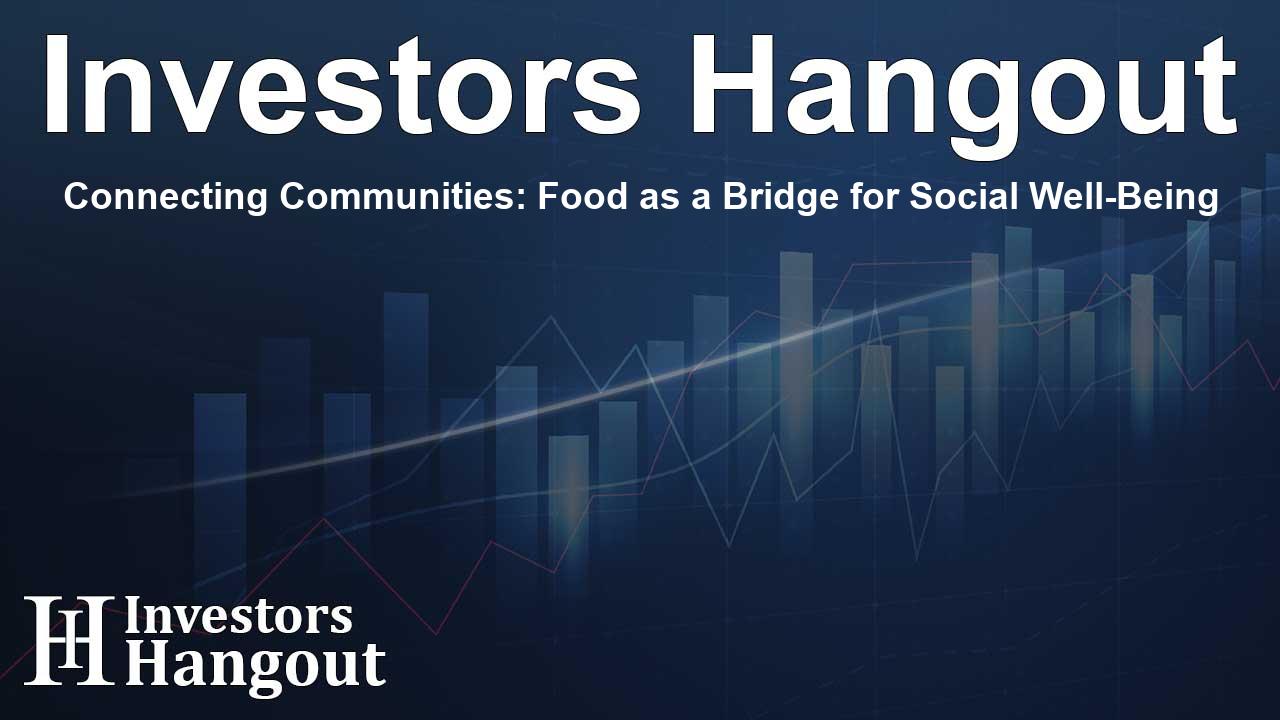Connecting Communities: Food as a Bridge for Social Well-Being

Harnessing Food for Social Connection
Food has always acted as a strong medium for fostering connections among people. From shared meals at neighborhood gatherings to the collective efforts involved in community gardens, food is more than just sustenance; it plays a vital role in creating social bonds. Despite its potential, many communities, especially in the United States, struggle to leverage food's power fully due to the high number of individuals who often find themselves eating alone or facing food insecurity.
The Need for a Connected Society
Statistics reveal concerning trends: a significant portion of the population, nearly 25%, consumes all their meals in solitude, while 10% of households experience some degree of food insecurity. These facts highlight an urgent call for community-focused initiatives that embrace the power of food to advance collective health and social well-being.
Introducing the SOCIAL Framework
The Foundation for Social Connection is taking significant steps through its new report that introduces the SOCIAL Framework. This innovative approach aims to build a culture where connection and belonging thrive within food systems. The report is a sequel in a series that provides insights into various sectors, all aimed at tackling the issues of social isolation and loneliness.
Real-World Applications of the SOCIAL Framework
At the core of the SOCIAL Framework lie actionable strategies designed to help communities cultivate connections through food. Jillian Racoosin Kornmeier, the Executive Director, emphasizes that by integrating research with practical solutions, we can create environments that foster interaction and community building.
Food as a Connector
Many have witnessed firsthand how food acts as a universal connector. Take, for instance, the interactions that occur in community kitchens or at local food festivals; these settings not only bring together diverse individuals but also empower them. Members from different backgrounds unite, share experiences, and develop relationships, which strengthen community ties.
Strategies to Foster Connection
The report maps out ten actionable strategies that stakeholders—from health professionals to community organizations—can adopt to enhance social connections. These strategies include creating community kitchens to promote shared meals, using meal delivery systems to facilitate regular interactions, establishing community gardens to cultivate togetherness, and incorporating food-related events into community agendas.
Addressing Barriers to Connection
While the potential to unite people through food is great, there are barriers, such as stigma and food insecurity that can lead to disconnection. The report sheds light on these challenges and provides considerations on how to turn the tide. Stakeholders are given real-life examples to draw inspiration and initiate change in their communities.
The Role of Commensality in Society
The report emphasizes the importance of commensality—sharing meals—as a foundational element in building community. Dr. Amy Bentley, a subcommittee member, notes that the act of sharing food has historically been vital to cultural connection and community support. With the challenges of modern living, revisiting and revitalizing the importance of sharing meals is more crucial than ever.
Resources for Engagement
For individuals and organizations looking to deepen their understanding, the full report is available for download, presenting a comprehensive look at the strategies discussed. Additionally, the Foundation for Social Connection will host a webinar titled "Advancing Social Connection through Food & Nutrition," aimed at further exploring these critical connections in our lives.
About the Foundation for Social Connection
The Foundation for Social Connection (F4SC), established in 2020, is at the forefront of addressing social disconnection. They partner with various organizations to apply research in practical ways, thus enhancing community well-being through social connection.
Frequently Asked Questions
What is the SOCIAL Framework?
The SOCIAL Framework is a strategic approach developed by the Foundation for Social Connection to foster social connections through food systems and community engagement.
How can food promote social connections?
Food serves as a common ground where individuals from various backgrounds can bond, share experiences, and develop important relationships.
What strategies are outlined in the report?
The report suggests creating community kitchens, using meal delivery services for social interaction, establishing community gardens, and hosting food festivals as key strategies.
How does food insecurity impact social connections?
Food insecurity prevents individuals from participating in communal eating experiences, thus limiting their ability to connect with others.
Why is commensality important in today's society?
Commensality is vital for community building as it encourages sharing, promotes a sense of belonging, and helps maintain mental well-being.
About The Author
Contact Ryan Hughes privately here. Or send an email with ATTN: Ryan Hughes as the subject to contact@investorshangout.com.
About Investors Hangout
Investors Hangout is a leading online stock forum for financial discussion and learning, offering a wide range of free tools and resources. It draws in traders of all levels, who exchange market knowledge, investigate trading tactics, and keep an eye on industry developments in real time. Featuring financial articles, stock message boards, quotes, charts, company profiles, and live news updates. Through cooperative learning and a wealth of informational resources, it helps users from novices creating their first portfolios to experts honing their techniques. Join Investors Hangout today: https://investorshangout.com/
The content of this article is based on factual, publicly available information and does not represent legal, financial, or investment advice. Investors Hangout does not offer financial advice, and the author is not a licensed financial advisor. Consult a qualified advisor before making any financial or investment decisions based on this article. This article should not be considered advice to purchase, sell, or hold any securities or other investments. If any of the material provided here is inaccurate, please contact us for corrections.
